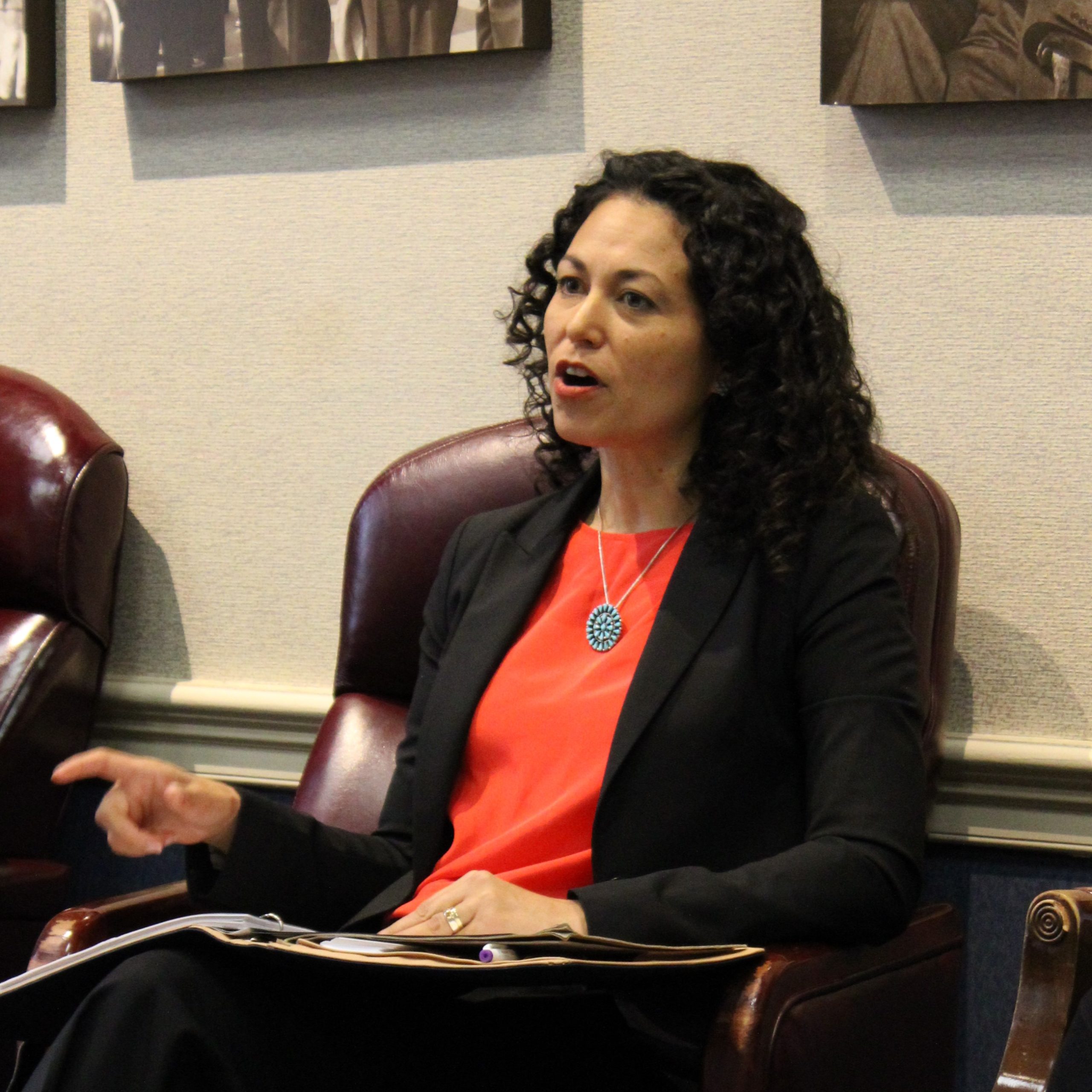By Janell Bohreer, ASU Sustainable Food Systems graduate student.
Note: This blog was originally written in May of 2023. On July 17, 2023, Xochitl Torres Small was confirmed by the Senate and sworn in as Deputy Secretary of the U.S. Department of Agriculture.
The food policy immersion week in Washington, D.C. affords students in ASU’s Sustainable Food Systems graduate programs an unparalleled experience. This year, the 2022 cohort had the distinct and fortuitous opportunity to meet with the Under Secretary of Rural Development, Xochitl Torres Small. Despite a hectic schedule of committee hearings following her recent nomination for Deputy Secretary of Agriculture, Under Secretary Torres Small graciously set aside time to address the future leaders in sustainable agriculture policy. Her passion and commitment to the mission of Rural Development were immediately apparent when she discussed her role delivering on the priorities of the Biden-Harris administration.
She began by answering a question she often encounters: Why is Rural Development an agency in the U.S. Department of Agriculture? Under Secretary Torres Small explained that the unique capacities of the Rural Housing Service, Rural Utility Service, and Rural Business-Cooperative Services align with the mission and vision of USDA, making Rural Development ideally suited to fall under the department’s umbrella. She went on to highlight a few of Rural Development’s numerous accomplishments during her time with the organization. Under Secretary Torres Small noted the Meat and Poultry Processing Expansion Program as an example of significant progress toward the goal of restoring small and midsized producers’ place in competitive markets. The agency has also invested considerable effort in advancing racial equity and support for underserved communities. This is evident in the administration’s directive, charging Farm Production and Conservation with ensuring services and funds are distributed where they are most needed rather than to those with the greatest ability to navigate bureaucracy. The Rural Partners Network formed to provide rural leaders with the necessary support and expertise to overcome this disconnect. This work reflects a whole of government strategy characteristic of this administration and emphasized throughout President Biden’s stated priorities.
Under Secretary Torres Small also took time to respond to questions from our group. One student asked her to comment on litigation following the American Rescue Plan Act of 2021 and Senator Cory Booker’s proposed Justice for Black Farmers legislation as it pertains to her current position. The question was in reference to the barrage of lawsuits challenging funds allocated to socially disadvantaged farmers and ranchers for debt relief and loan repayment. The Inflation Reduction Act later repealed the provision when it was enacted on August 16, 2022. The Under Secretary reiterated the commitments to equity and meeting the needs of distressed communities made by the administration and USDA. She stated that Rural Development has a policy of data driven decisions that match disadvantaged rural areas with programs and funding. She described regulatory actions the agency employed to uphold its commitments in the absence of statutory action. She further reflected upon her organization’s success in breaking silos through initiatives such as the National Institute of Food and Agriculture collaboration with Marketing and Regulatory Programs.
Under Secretary Torres Small projects unequivocal enthusiasm championing the mission of Rural Development. She is dedicated to supporting meaningful, place-based work in rural America, knowing it will enhance the communities and people that live there. We wish her every success with her nomination to serve as Deputy Secretary of Agriculture.
This blog is part of a series from the May 2023 Washington D.C. Immersive component of the Swette Center graduate programs. Students met with federal food and agriculture focused officials at USDA, the White House, and Congress alongside many other important influencers of policy in industry and non-profits.
